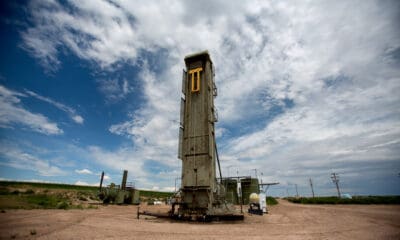
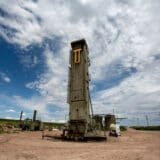
Northwestern New Mexico’s fossil-fueled economy is cratering. Will departing drillers clean up after themselves?
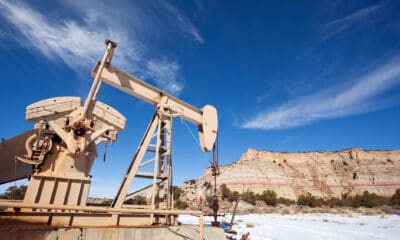
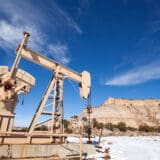
Considering climate change’s existential threat, the dearth of regional reporting on the corporate forces driving global warming is striking.

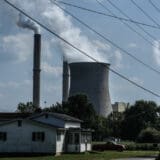
Why climate advocates say funding the unproven technology is a costly mistake.

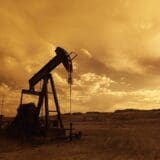
While California was convulsed by COVID-19 and George Floyd’s death, the governor gave Big Oil a big gift.
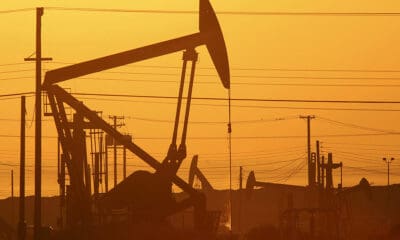
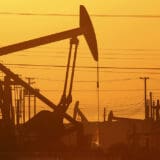
Bernie Sanders and Joe Biden have big climate goals. Here’s how they can reach them.
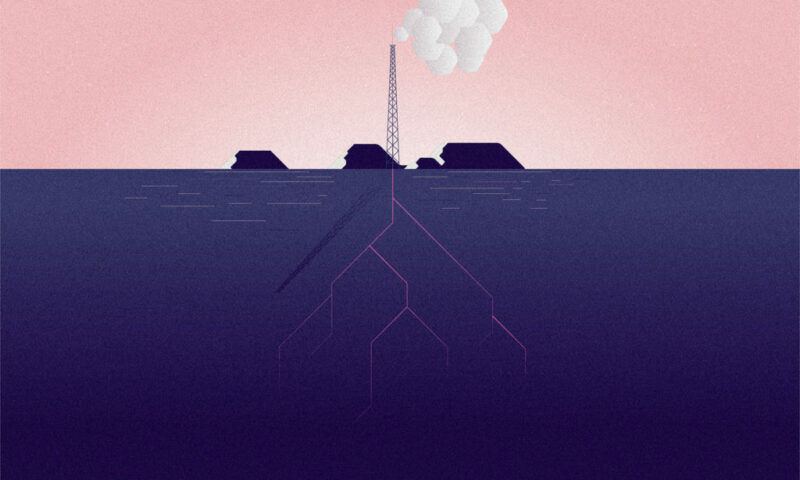

Co-published by Westword
The total absence of climate change discussion in Colorado’s 2018 election was striking, considering the state’s intensified floods, droughts and wildfires.
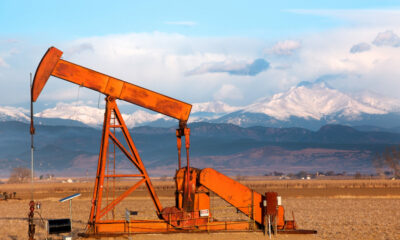
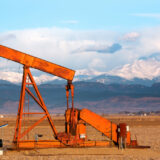
Co-published by Westword
Fallout from Colorado’s Amendment 74 could land on all states’ efforts to curb pollution and climate change.


Co-published by WNYC New York Governor Andrew Cuomo’s administration delayed — rather than blocked — a fracked-gas pipeline project just before Cuomo hired Maggie Moran, a registered lobbyist for the pipeline’s parent company, to run his reelection campaign.
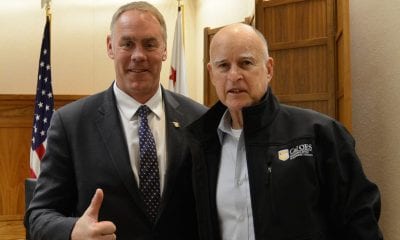
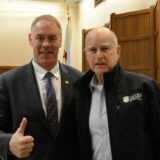
Co-published by Newsweek
There’s something hinky about the governor’s climate leadership, an inconsistency that environmentalists warn will threaten his legacy.
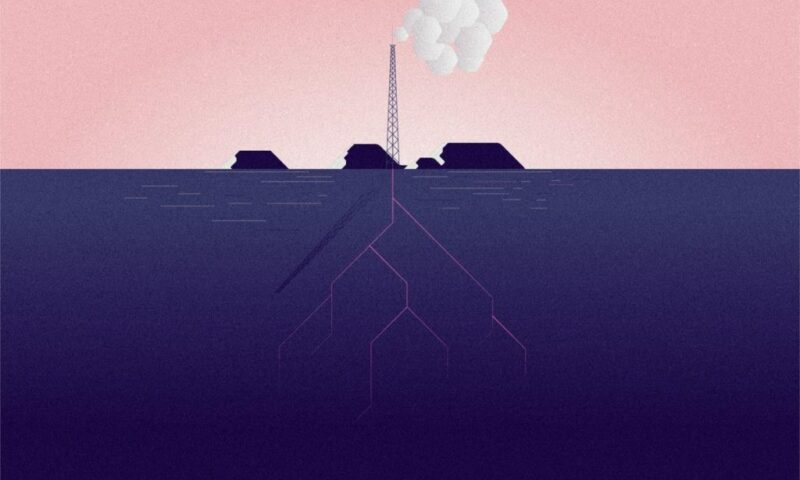

Perhaps no year in living memory presented greater challenges and opportunities to the press than 2017, and Capital & Main was no exception. In response to the Trump presidency, we expanded our coverage well beyond California, while continuing to investigate the fault lines that undergird the nation’s most populous state. We also deepened our reporting on immigration, hate and white nationalism and climate change – issues that will define the Trump era. And we began a long-term commitment to examining business and social responsibility.
Here are 10 series and stories from 2017 that offer a window into how Capital & Main made sense of an extraordinary year in the history of our nation and state.
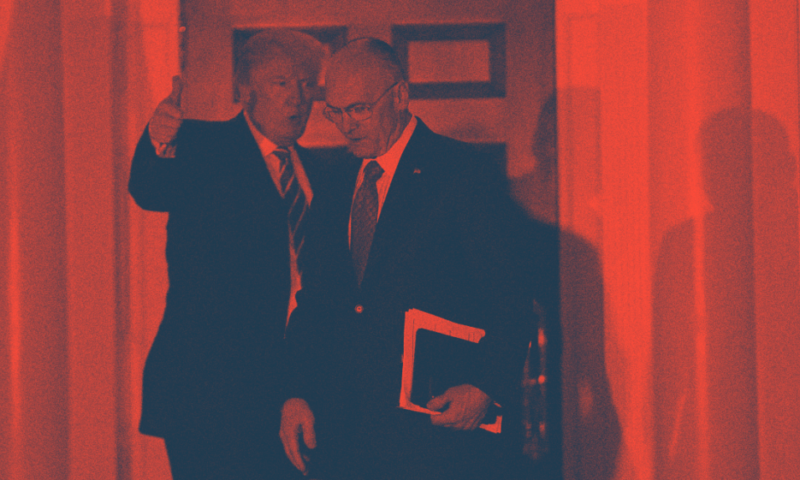
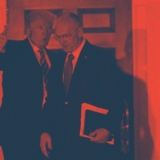
Perhaps no year in living memory presented greater challenges and opportunities to the press than 2017, and Capital & Main was no exception.


Playwright Josefina López appropriates the basic construct of Ibsen’s An Enemy of the People, tosses in large dollops of magical realism and transforms the lead character from a 19th-century Norwegian doctor into a 21st-century Mexican curandera.


Co-published by International Business Times
Environmentalists and community activists have long lobbied for a statewide ban on fracking. “Given what we know about fracking’s dangers, [banning it] is just a no-brainer,” says one advocate.
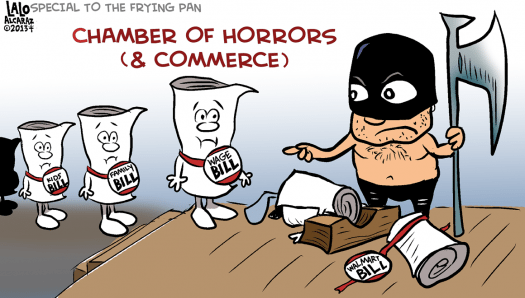

The California Chamber of Commerce represents more than 13,000 businesses, from companies such as Microsoft and Walt Disney, to local companies with small numbers of employees. From its K Street headquarters in Sacramento, the “Cal Chamber,” as it’s colloquially known, analyzes some 3,000 pieces of legislation every year. In the past 10 years, 341 of 353 — nearly 97 percent — of the bills opposed by the California Chamber of Commerce failed to become law. The vast majority of these were never passed by the Legislature and sent to the Governor. Instead, they were killed in committee or voted down by the Legislature or amended to take out provisions opposed by the chamber.
The chamber’s weapon of choice is its highly publicized “Job Killers List,” a roll call of bills the chamber claims threaten the interests of business, though its press releases tend to stress the bills’ menace to California’s economy and its workers’ jobs.
» Read more about: DOA: Behind the Chamber of Commerce’s “Job Killers” List »
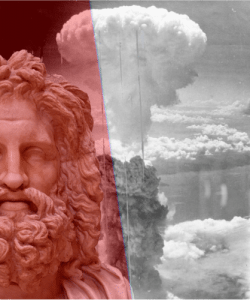

“Can Google Solve Death?” read the cover headline of a national news weekly. It cleverly enticed readers to read the story inside. The question also represents one of the major problems facing human beings. No, not death, but hubris.
Hubris was one of the themes of the great Greek tragedies in the fifth century before the Common Era. The Greek playwrights like Aeschylus, Euripides and Sophocles understood all too well the capacity of humans to extend themselves beyond their ability to limit the damage caused by their actions.
So great families disintegrated, monarchs fell and society itself came close to collapse – all because people in power could not stop themselves from reaching beyond their limitations as human beings. We do the same, but in new ways with unknown consequences.
Global climate change comes instantly to mind. Last spring, for the first time in human history,
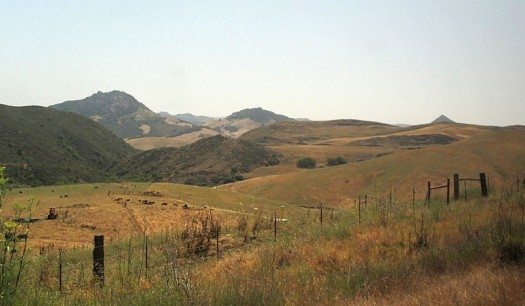
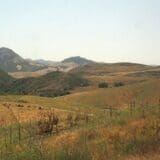
Big Oil says we ought to be supporting fracking because it causes less air pollution than other forms of energy, such as coal or even conventional oil drilling. As is frequently the case in these fights over facts, the oil companies have it about half right – maybe less.
Fracking technology pumps a mix of water, chemicals and sand a mile or so into the earth’s crust to release natural gas captured between layers of rock that the usual methods of drilling couldn’t touch. It’s birthed a modern day gold rush as the petroleum companies hurry to be the first to drill the Barnett Shale in Texas or the Marcellus Shale that lies beneath parts of Pennsylvania, New York, Ohio, Virginia, West Virginia, Kentucky and Maryland. Closer to home, there is the Monterey Shale formation in the old oil fields around Taft, west of Bakersfield.
Push below the surface of the big oil theme and we learn that while burning natural gas for fuel produces only about half the carbon emissions as coal,
» Read more about: Big Oil Has Big Plans for Our Environment »